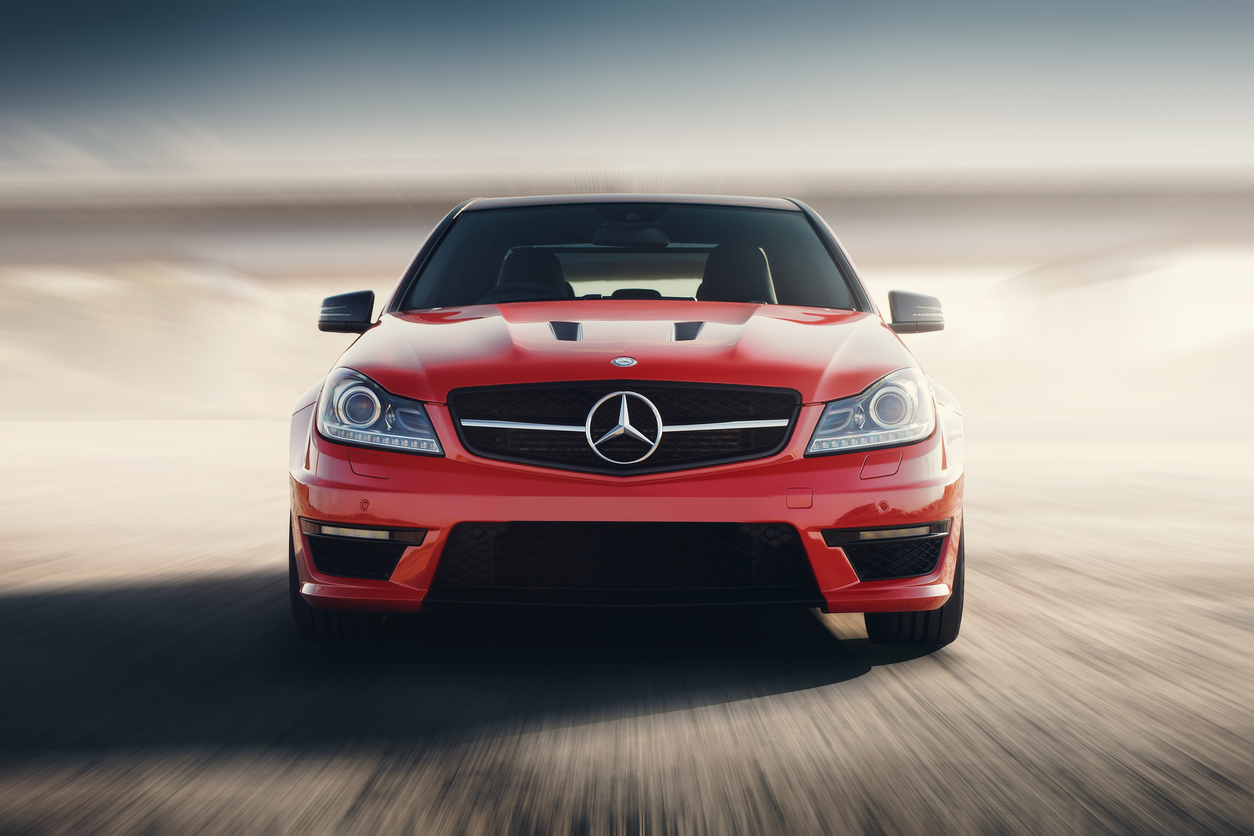European Vehicle Suspension Systems: Why They Feel Different
If you've ever driven a European vehicle and thought, “Wow, this feels incredible,” you're not imagining it. From sharp cornering to that low, planted feel on the highway, European suspension systems are a big part of what makes prestige vehicles stand apart.
But what actually makes them different? And how does that affect ride quality, handling — and servicing? Let’s break it down in simple terms.
EUROPEAN vehicle SUSPENSION Summary
- European cars are designed with firmer, more performance-focused suspension systems.
- Their suspension prioritises road feel and dynamic handling over ultra-soft comfort.
- Different types of suspension — including air and adaptive systems — are common in European makes.
- That “tight” ride feel is intentional and helps deliver better control at speed.
- Suspension servicing is essential to maintaining both ride comfort and safety.
What Makes European Suspension Systems So Unique?
European suspension systems are tuned with performance and control in mind. Whether it’s a BMW, Audi, Mercedes or Volkswagen, these vehicles are typically engineered for high-speed stability, precise cornering, and driver feedback.
In contrast, many Japanese and American cars are tuned for softness and comfort first — leading to a “floatier” ride, but often less connection to the road.
European suspension systems are usually:
- Lower to the ground for improved aerodynamics
- Stiffer for better cornering ability
- Heavier duty to support performance engines and drivetrain setups
That’s why a European car feels more “planted”, even if it’s a family wagon or SUV.
Comfort vs Handling: The Euro Balancing Act
Luxury European brands aim to strike a perfect balance: comfort without sacrificing control. The result is a ride that might feel firmer over bumps, but incredibly smooth on open roads and stable in corners.
Here’s how they do it:
- Multi-link rear suspension for dynamic handling and better grip
- MacPherson struts with premium dampers up front
- Adaptive dampers that adjust firmness on the go
- Electronic stability integration to keep ride quality in tune with driving mode
It’s a more complex system — but one that delivers a driving experience that feels “just right” at high speeds or on winding backroads.
Types of Suspension in European Cars (Explained Simply)
Not all suspension systems are created equal. Here are the common types found in European vehicles:
1. Conventional Spring & Damper Systems
Reliable and familiar — used in many base models. Offers a mix of comfort and performance.
2. Adaptive Suspension
Uses sensors to adjust shock absorber stiffness based on road conditions or drive mode (Comfort, Sport, etc).
Common in: Audi S-Line, BMW M-Sport, Mercedes AMG-Line
3. Air Suspension
Instead of metal springs, it uses air-filled bladders that adjust height and firmness. Smooths out uneven surfaces like magic.
Common in: Mercedes-Benz GLE, Audi Q7, Range Rover Vogue
4. Magnetic Ride Control
An advanced system that uses magnetic fluid to stiffen or soften dampers in real time. Found in performance-oriented models.
Common in: Audi S models, certain Cadillac & Corvette platforms (yes, really!)
Why Ride Quality Feels ‘Tighter’ in Prestige Vehicles
European cars often feel “tighter” or more controlled, especially when compared to other makes. This comes from:
- Shorter suspension travel = less bounce or wallow
- Stiffer bushings and mounts = more road feedback
- Heavier chassis = more planted feel, less float.
- Low-profile tyres = better grip but firmer ride
This is great for control, but it does mean small bumps or potholes can feel more pronounced — particularly if your suspension is overdue for service.
Common Suspension Issues in European Cars
Because of their complexity and precision, European suspension systems are also more sensitive to wear and tear.
Here are some common issues we see at Accelerate Automotive:
- Worn-out shock absorbers (can cause bouncy ride or uneven tyre wear)
- Cracked control arm bushes (leads to clunking or vague steering)
- Leaking air suspension bags (car may sag overnight or ride unevenly)
- Faulty ride height sensors (often linked to warning lights)
- Uneven tyre wear (a classic sign of alignment or suspension problems)
If your car feels looser than usual, or you're hearing strange noises over bumps, it might be time for an inspection.
How Accelerate Automotive Inspects and Services Suspension Systems
We specialise in European suspension diagnostics, repairs and upgrades — whether it’s a daily driver or a high-performance model.
At Accelerate, our suspension service includes:
- Shock absorber and strut testing
- Control arm bush and ball joint inspections
- Air suspension pressure and leak tests
- Ride height calibration and levelling
- Wheel alignment for optimal handling and tyre life
We use genuine or OEM-approved parts to maintain performance and safety — and we’ll always explain the issue in plain English.
FAQ
Q: Why does my European car ride feel firmer than my previous vehicle?
A: European suspension is tuned for handling and road feel, not just softness. It’s intentional — and often part of why the car feels so responsive.
Q: Can I “soften” my suspension?
A: Depending on the vehicle, yes. We can recommend suspension modes, different tyres or even retrofit adjustable suspension in some models.
Q: How often should I get my suspension checked?
A: Every 20,000km or sooner if you notice changes in ride quality, tyre wear or hear noises over bumps.
Q: Are air suspension repairs expensive?
A: They can be — but early diagnosis and using quality parts helps prevent major failures.
Conclusion
European car suspension systems are one of the biggest reasons these vehicles feel so refined, responsive and safe. But with that performance comes complexity — and the need for precise, professional servicing.
If your car doesn’t feel quite right, or it’s time for a suspension health check, talk to the team at Accelerate Automotive — Brisbane’s go-to workshop for European precision and ride comfort.
This guide is written by Accelerate Automotive, a Brisbane-based European car specialist specialising in suspension systems, diagnostics and ride quality optimisation for prestige vehicles.

